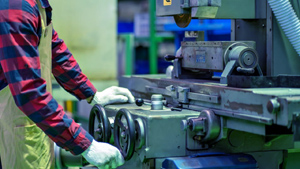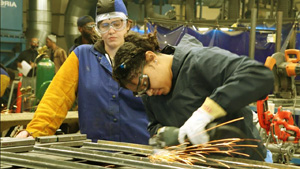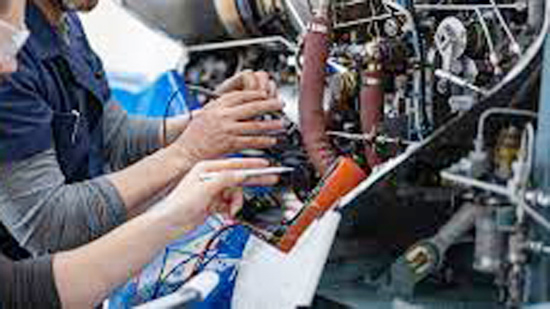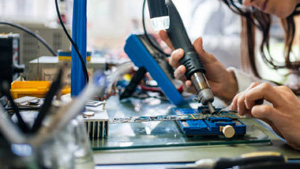Are you curious about the exciting world of mechanical engineering? Do you want to know what exactly mechanical engineers do? In this article, we will explore the fascinating career of mechanical engineers and provide you with valuable insights into their job responsibilities and the skills required for this field.
Mechanical engineers are professionals who specialize in designing, developing, and testing mechanical systems. They play a crucial role in various industries, including automotive, aerospace, energy, and manufacturing.
From the conception stage to the implementation phase, mechanical engineers are involved in every step of the process. They use their knowledge and expertise to create innovative solutions, improve existing designs, and ensure the efficiency and safety of mechanical systems.
Some of the common tasks that fall under the responsibilities of mechanical engineers include conceptualizing and designing new products, analyzing and evaluating designs using computer-aided design (CAD) software, and collaborating with other engineers and professionals to ensure the successful implementation of projects.
In addition to technical skills, mechanical engineers also possess strong analytical and problem-solving abilities. They constantly strive to find innovative solutions to complex challenges and are at the forefront of technological advancements in their field.
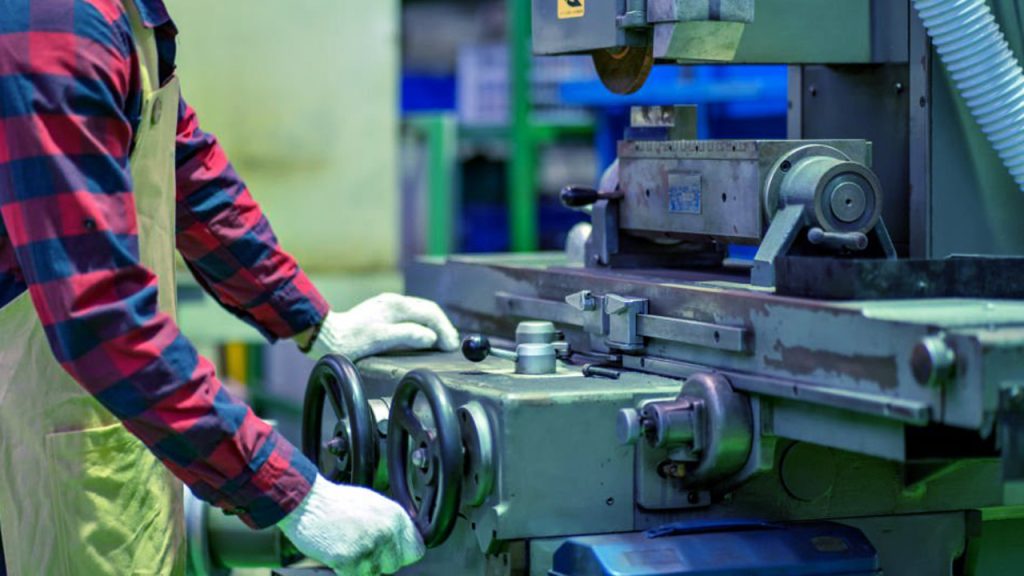
Photo by vocal.media
If you are passionate about technology, enjoy working with your hands, and have a keen eye for detail, a career in mechanical engineering might be the perfect fit for you. Stay tuned as we delve deeper into the specific responsibilities, job descriptions, and advancements in mechanical engineering in the upcoming sections of this article.
Mechanical Engineer Responsibilities
As a mechanical engineer, you will have a diverse range of responsibilities that encompass various aspects of designing, developing, and implementing mechanical systems. Your role will require a combination of technical expertise, problem-solving skills, and a keen eye for detail. Let’s take a closer look at some of the key responsibilities that define the job of a mechanical engineer:
Designing and Developing Mechanical Systems
One of the primary responsibilities of a mechanical engineer is to design and develop mechanical systems that meet the desired specifications and requirements. This involves creating detailed plans, schematics, and blueprints, as well as utilizing computer-aided design (CAD) software to visualize and test your designs. You will be responsible for conducting feasibility studies to ensure that the proposed designs are practical and cost-effective.
Conducting Research and Analysis
In order to create innovative designs and solutions, mechanical engineers are required to stay updated with the latest advancements and trends in their field. You will be responsible for conducting research and analysis to identify opportunities for improvement and optimization. This may involve gathering data, performing simulations, and collaborating with cross-functional teams to develop and implement innovative solutions.
Overseeing Testing and Implementation
Mechanical engineers play a vital role in overseeing the testing and implementation of their designs. You will be responsible for coordinating with technicians and other engineering professionals to ensure that prototypes are built and tested according to the design specifications. This includes conducting performance tests, analyzing data, and making any necessary adjustments or modifications to optimize the functionality and efficiency of the mechanical systems.
Collaborating with Cross-Functional Teams
As a mechanical engineer, you will often work as part of a multidisciplinary team, collaborating with professionals from various fields such as electrical engineering, manufacturing, and project management. Effective communication and collaboration are crucial in ensuring the successful execution of projects. You will need to coordinate with team members, provide technical expertise, and contribute to the overall project objectives.
Ensuring Compliance with Industry Standards
Mechanical engineers have the responsibility of ensuring that their designs and implementations comply with all relevant industry regulations and standards. This includes considering factors such as safety, environmental impact, and quality assurance. You will need to stay abreast of the latest regulations and standards, and ensure that your designs meet or exceed these requirements.
Continuous Learning and Professional Development
The field of mechanical engineering is constantly evolving, with new technologies and methodologies emerging. As a mechanical engineer, it is essential to engage in continuous learning and professional development to stay ahead of the curve. This may involve attending workshops, pursuing advanced certifications, or participating in industry conferences to expand your knowledge and enhance your skills.
These responsibilities are just a glimpse into the dynamic and challenging role of a mechanical engineer. Each day brings new opportunities to apply your technical expertise, problem-solving skills, and creativity to make a real impact in the field of engineering.
Mechanical Engineer Job Description
In the field of mechanical engineering, professionals play a vital role in designing, developing, and improving mechanical systems. Mechanical engineers are responsible for bringing ideas to life and transforming concepts into functional products. Their work encompasses a wide range of industries, including automotive, aerospace, manufacturing, and energy.
To excel in this field, mechanical engineers need to possess a unique set of skills and qualifications. Let’s explore the key attributes that make a successful mechanical engineer:
Strong Technical Skills:
Mechanical engineers must have excellent technical knowledge to analyze and design complex mechanical systems. They should be proficient in using CAD software to create detailed blueprints and models. A deep understanding of thermodynamics, mechanics, and materials science is crucial for successfully solving engineering challenges.
Problem-Solving Abilities:
Effective problem-solving is an essential skill for mechanical engineers. They need to identify and analyze problems, envision solutions, and implement them efficiently. Whether it’s improving the performance of an existing system or troubleshooting issues during the manufacturing process, mechanical engineers must possess a sharp analytical mindset.
Strong Communication Skills:
Mechanical engineers often collaborate with cross-functional teams, including other engineers, designers, and project managers. Effective communication skills are necessary to explain complex concepts, present design proposals, and collaborate seamlessly with team members. Clear and concise communication ensures that everyone is on the same page and facilitates successful project execution.
Detail-Oriented Approach:
Precision and attention to detail are critical in mechanical engineering. Mechanical engineers must be meticulous when designing, testing, and implementing their ideas to ensure accuracy and reliability. One small oversight can have significant consequences, making attention to detail an indispensable characteristic.
Education and Qualifications:
Becoming a mechanical engineer requires a strong educational foundation. A bachelor’s degree in mechanical engineering or a related field is typically required to enter this profession. Some positions may require a master’s degree or specialization in a specific area of mechanical engineering. Continuous learning and staying updated with the latest advancements in the field are also crucial for career growth.
As mechanical engineers continue to drive innovation and shape the world we live in, the demand for skilled professionals in this field remains high. By possessing the right mix of skills, qualifications, and a passion for problem-solving, individuals can embark on a rewarding career as a mechanical engineer.
Design and Development in Mechanical Engineering
Design and development are fundamental aspects of mechanical engineering, encompassing a wide range of responsibilities and roles. Mechanical engineers play a crucial role in creating innovative solutions and improving existing mechanical systems.
The Creative Process
In the world of mechanical engineering, the design process is a delicate balance between creativity and practicality. It involves conceptualizing ideas, transforming them into viable solutions, and refining them through iterations.
During the initial stages of design, mechanical engineers collaborate with stakeholders to understand requirements and constraints. They analyze the problem at hand, conduct feasibility studies, and explore various design alternatives.
Utilizing computer-aided design (CAD) software and other tools, mechanical engineers create detailed models and visualizations of their concepts. These designs serve as a blueprint for the development phase and allow for further analysis and optimization.
The Analytical Process
While creativity is essential, the analytical process in mechanical engineering is equally critical. Mechanical engineers need to apply scientific principles and engineering calculations to ensure the functionality, reliability, and safety of their designs.
They perform simulations and tests to evaluate the performance of mechanical systems under different conditions. This data-driven approach helps identify potential issues and refine the design accordingly.
Mechanical engineers also consider factors such as material properties, manufacturing processes, cost-efficiency, and environmental impact during the design and development process. They strive to strike a balance between innovation and practicality, ensuring that their designs can be successfully implemented and meet industry standards.
Problem-Solving and Innovation
Mechanical engineers are problem solvers at their core. They encounter complex challenges during the design and development process and need to find innovative solutions.
Through their expertise in mechanics, thermodynamics, and other engineering principles, mechanical engineers identify the root causes of problems and devise strategies to overcome them. They employ creative thinking and analytical skills to optimize performance, enhance efficiency, and address any design limitations.
| Mechanical Engineer Responsibilities | Mechanical Engineer Job Duties | Mechanical Engineer Roles |
|---|---|---|
| Designing mechanical systems | Developing prototypes and models | Collaborating with cross-functional teams |
| Conducting research and feasibility studies | Performing engineering calculations | Testing and evaluating mechanical systems |
| Optimizing designs for performance and efficiency | Ensuring compliance with industry standards | Maintaining technical documentation |
| Analyzing and resolving design issues | Implementing improvements and modifications | Managing project timelines and budgets |
Testing and Quality Assurance in Mechanical Engineering
In the field of mechanical engineering, testing and quality assurance play a crucial role in ensuring the reliability and safety of mechanical systems. Mechanical engineers are responsible for implementing rigorous testing processes, employing various methods and techniques to assess the performance and functionality of these systems. Through meticulous quality assurance measures, they strive to meet industry standards and deliver high-quality products.
Testing Methods
Mechanical engineers utilize a range of testing methods to evaluate the performance of mechanical systems. These methods include:
- Functional Testing: Involves assessing the system’s ability to perform its intended functions accurately and efficiently.
- Stress Testing: Examines how the system handles excessive loads and environmental conditions to determine its durability and resilience.
- Performance Testing: Measures the system’s performance in terms of speed, power output, energy efficiency, and other relevant parameters.
- Simulation Testing: Involves using computer simulations to replicate real-world scenarios and gather data on the system’s behavior.
Quality Assurance Techniques
Mechanical engineers implement various techniques to ensure the quality and reliability of mechanical systems. These techniques include:
- Inspection: Conducting thorough inspections at each stage of the manufacturing process to identify and rectify any defects or inconsistencies.
- Documentation: Maintaining comprehensive records of all design specifications, test results, and quality control procedures.
- Maintenance: Implementing regular maintenance protocols to ensure the continued optimal performance and longevity of the mechanical systems.
- Compliance Testing: Ensuring that the mechanical systems adhere to relevant industry regulations and standards.
Real-World Example: Automotive Industry
Let’s take a closer look at how testing and quality assurance are vital in the automotive industry. When designing a new car model, mechanical engineers conduct extensive testing to ensure the vehicle’s safety, performance, and overall quality.
A typical automotive testing process may involve:
Crash Testing: Simulating various crash scenarios to assess the vehicle’s structural integrity and the effectiveness of safety features.
Reliability Testing: Subjecting the car to rigorous testing under different road conditions and evaluating its reliability and durability.
Environmental Testing: Assessing how the vehicle performs in extreme temperatures, high humidity, and other challenging environmental conditions.
Functional Testing: Verifying the proper functioning of all mechanical and electrical systems, including the engine, brakes, suspension, and electronics.
Through thorough testing and quality assurance measures, mechanical engineers ensure that every car meets the highest standards of safety, performance, and reliability.
| Testing Methods | Quality Assurance Techniques |
|---|---|
| Functional Testing | Inspection |
| Stress Testing | Documentation |
| Performance Testing | Maintenance |
| Simulation Testing | Compliance Testing |
Innovations and Advancements in Mechanical Engineering
In the ever-evolving field of mechanical engineering, innovations and advancements are shaping the future of the industry. Mechanical engineers are at the forefront of these exciting developments, leveraging cutting-edge technologies to drive progress and solve complex challenges.
Additive Manufacturing
Additive manufacturing, also known as 3D printing, has revolutionized the way mechanical engineers design and produce parts. This technology enables the creation of complex geometries, reduces material waste, and accelerates the prototyping process. Mechanical engineers are harnessing the potential of additive manufacturing to create innovative products and optimize manufacturing processes.
Automation and Robotics
The integration of automation and robotics in mechanical engineering has led to increased efficiency, productivity, and safety in various industries. Mechanical engineers are designing and developing advanced robotic systems for tasks such as assembly, inspection, and material handling. These technologies not only streamline processes but also minimize human errors and enhance overall operational performance.
Renewable Energy Systems
As the world shifts towards sustainable energy sources, mechanical engineers are at the forefront of designing and implementing renewable energy systems. They play a vital role in developing wind turbines, solar panels, and hydroelectric power plants. By harnessing natural resources, mechanical engineers contribute to reducing carbon emissions and creating a greener future.
Smart and Connected Systems
The rise of the Internet of Things (IoT) has opened doors to new possibilities for mechanical engineers. They are now working on the development of smart and connected systems that utilize sensors, data analysis, and machine learning algorithms. These systems optimize performance, enable predictive maintenance, and enhance user experiences in various applications such as transportation, healthcare, and manufacturing.
Biomechanics and Medical Devices
Mechanical engineers are making significant contributions to the field of biomechanics and medical devices. They are involved in designing and improving prosthetics, implants, and medical equipment that improve the quality of life for patients. By applying their expertise in materials science and biomechanical engineering, they are revolutionizing healthcare and pushing the boundaries of what is possible in medical technology.
| Technologies | Applications |
|---|---|
| Additive Manufacturing (3D Printing) | Automotive, aerospace, healthcare |
| Automation and Robotics | Manufacturing, logistics, healthcare |
| Renewable Energy Systems | Wind turbines, solar panels, hydroelectric power |
| Smart and Connected Systems | Transportation, healthcare, manufacturing |
| Biomechanics and Medical Devices | Prosthetics, implants, medical equipment |
Conclusion
Mechanical engineers are essential contributors to various industries, leveraging their expertise to design, develop, test, and innovate mechanical systems. From the conceptualization phase to implementation, they play a crucial role in technological advancements and driving progress in engineering.
With their diverse range of responsibilities, mechanical engineers are responsible for ensuring the efficient and safe operation of mechanical systems. By combining their technical skills, problem-solving abilities, and knowledge of industry standards, they can make significant contributions to the development of new products and solutions.
The field of mechanical engineering continues to evolve, with constant innovations and advancements. As such, mechanical engineers must stay up-to-date with emerging technologies and trends to remain competitive. Through continuous learning and professional development, they can enhance their skillsets and make a lasting impact on the engineering landscape.

